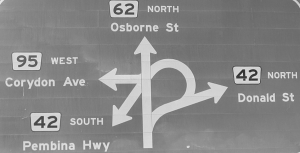All owners wrestle with questions about selling—whether to sell, how to sell, at what price, when, to whom and what will I do then? The questions can overwhelm and paralyze action. The questions are what keep us awake at night.
Some avoid the questions, hoping they figure themselves out. Or we search for “the answer” by buying books, going to seminars, asking our friends or other experts. The first strategy, ignoring, is clearly a bad one, no matter how popular. The second is severely limited. Why? Because no one knows your business better than you do. The right or best answer has to be worked out by you. Too many experts forget this.
If You Don’t Ask the Right Questions, You Can’t Hope to Get the Right Answer
When I wrote Exit Signs, I targeted the questions an owner has to answer to create a great exit strategy and leave their business with profit, pride and a path forward; but I also focused on HOW to decide.
For example, if you are in a quandary about the main reason for selling or the results you are after, I ask you, “What do you care about when you think about leaving your business?” Make a list and force-rank the items. Making the list starts to clarify your rational thinking; force-ranking helps to clarify the emotion behind it. In other words, what’s keeping you awake is not the list, but trying to know what’s really important to you.
OR, you may lie awake asking yourself if you should stay just one more year before leaving. I faced that in my last year with my firm. We had a huge growth opportunity, and nothing hooks an owner like big growth. Do I stay just one more year doing what I love and what will really impact our bottom line and my retirement? Those are big hooks. But like many owners, in considering the allure I didn’t consider the hidden hazards of the option. Probing multiple options, not just “stay or go,” prevents second-guessing at 2 a.m or regrets in hindsight. In Exit Signs, I call this “Hooks, Hazards, and Hindsight” thinking.
The right questions foster closure and action, not the painful analysis/paralysis we too often wade through.
Is there a Most Important Question for Owners Selling their Business?
 It’s a tough question in itself. In writing, I tried to develop a decision tree to help an owner see the impact of choices (or answers) to critical questions about selling. It was 3 pages long and looked like one of those crazy freeway interchange direction signs.
It’s a tough question in itself. In writing, I tried to develop a decision tree to help an owner see the impact of choices (or answers) to critical questions about selling. It was 3 pages long and looked like one of those crazy freeway interchange direction signs.
But it did start with ONE question at the top:
“Do you really want to sell?”
If you cannot honestly answer that question, there is no sense starting an exit plan except as a practice exercise to learn about it. There are two serious consequences of failing to be clear about your answer.
1) The planning process often becomes an exercise in futility for you and others. You may waste time and money on advisors, distract your people, and rattle customers. The most brilliant plan will come down to negotiations or a closing, where it will stall or be aborted if the owner isn’t ready to sell. One COO of a mid-size company told me of spending two years preparing and marketing the company to be sold. And repeatedly when it came to the final phase with a prospective buyer, the founder couldn’t pull the trigger, because he just wasn’t emotionally ready.
2) You will be one of the many owners who say they wished they hadn’t sold. According to a PwC study, 75 percent of business owners regret selling their businesses only one year post-sale. They hadn’t answered the right set of questions — even if they thought they had the right answer.
So I ask you to consider:
What keeps you awake at night, and have you asked the right question about it?
Photos courtesy of Colin Kinner and Chris Evans.

